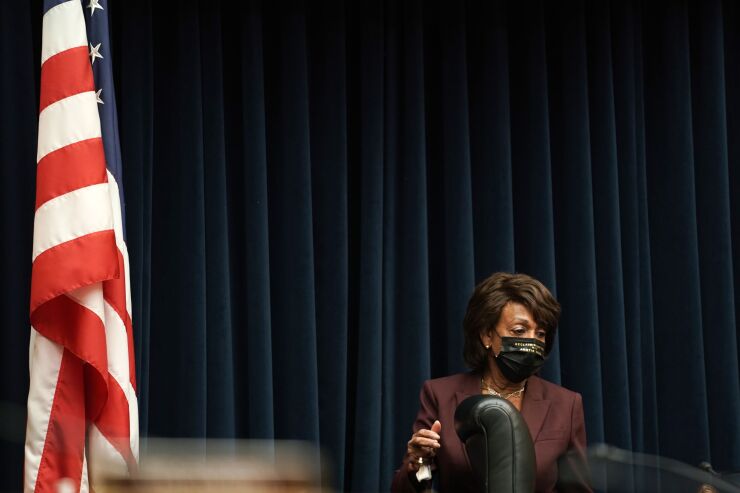WASHINGTON — Despite calls from the Biden administration for bipartisan action on coronavirus relief, lawmakers remain sharply divided over the scope of stimulus funds for mortgage borrowers, renters and small businesses.
At the center of the partisan disagreement is whether funding for programs like the State Small Business Credit Initiative and Homeowner Assistance Fund would be cut off when the public health emergency is declared over, or would remain in place to mitigate lingering economic effects.
“The fact is the economic crisis will last many, many months perhaps after the health crisis is over,” Rep. Brad Sherman, D-Calif., said Wednesday at a House Financial Services Committee markup of the $1.9 trillion stimulus plan championed by the White House.
Several Republicans on the panel questioned allowing funding for programs that predated the pandemic and proposed amendments to set a deadline on certain appropriations, warning that Democrats shouldn't take advantage of the crisis to boost government programs. Yet all of their amendments were rejected.
“Bottom line, we need to deliver temporary, targeted, and COVID-related relief to the people who need it most,” McHenry said. “Despite my colleagues’ claims, it is possible to do too much. In fact, there is bipartisan agreement that this additional $1.9 trillion package could overheat the economy.”

The debate indicated that House Democrats are on track to pass the legislation with little to no GOP support. (Congress has yet to act on the stimulus plan despite a Senate vote enabling lawmakers to advance the relief package through the budget reconciliation process.)
The stimulus legislation would provide roughly $25 billion for emergency rental assistance, $5 billion to support people experiencing homelessness, $10 billion for struggling homeowners to make their mortgage payments, and $10 billion to support small businesses, including minority-owned businesses.
The $10 billion in mortgage aid would deliver relief to states and local tribes in the form of direct assistance with mortgage payments, property taxes, property insurance and other housing costs.
Democrats on the committee called for a sweeping approach to ensure that Congress is supporting the economic aftermath of the pandemic.
“Millions of individuals and families are on the brink of eviction or foreclosure as back rent or mortgage payments pile up through no fault of their own,” said Chairwoman Maxine Waters, D-Calif. “Across the nation people are struggling to make ends meet, and hunger is growing. Communities of color continue to be the hardest hit."
Republicans on the committee warned that the legislation would authorize funds to be used well after the pandemic is over.
“If we are going to provide emergency relief, it should be provided through the national pandemic emergency, not out through 2025 and 2030,” said Rep. Ann Wagner, R-Mo.
Another sticking point is whether Congress should allocate funds for programs that were established outside of the pandemic. Democrats’ proposal includes a reauthorization of an Obama-era program to help states support small businesses, known as the State Small Business Credit Initiative.
“This would codify numerous partisan priorities, including duplicative rental assistance to funnel money toward non-COVID purposes and restarts the ineffective Obama-era State Small Business Credit Initiative,” McHenry said.
Rep. Al Green, D-Texas, said the program could leverage government funds to spur small-business growth.
“This would help our small businesses, it would help us to leverage money,” Green said. “We can have $1 billion in and it leverages $10 billion. As a matter of fact, when we had the downturn in 2008 we put in $1.5 billion into this program and it leveraged $15 billion.”
Rep. Blaine Luetkemeyer, R-Mo., attempted to amend the State Small Business Credit Initiative reauthorization, requiring all funding to be used within six months after the end of the national health emergency. But the amendment was rejected by Democrats.
“The SSBCI provision of the bill is clearly written to give states money well into the future with little immediate benefit to workers and job creators,” Leutkemeyer said. “This program is being touted as helping small businesses make it through the pandemic yet does not require all the funding to go out for five years and allows states to sit on that funding for up to 10 years.”




